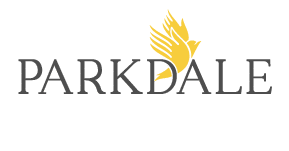Substance Abuse Among Healthcare Professionals
In the bustling world of healthcare, where saving lives is the norm and stress is an everyday companion, there exists a silent crisis that often goes unnoticed: substance abuse among healthcare professionals. The very individuals dedicated to healing others sometimes find themselves ensnared by the clutches of addiction. At Parkdale Center, we understand the unique challenges faced by working professionals in the healthcare industry and offer specialized addiction treatment tailored to their needs.
Contact our Indiana drug rehab today to learn more about how we can help.
The Stressful Work Environment
Healthcare professionals operate in high-pressure environments, making split-second decisions that can have life-altering consequences. The constant demand for precision, combined with long hours and emotionally taxing situations, can create overwhelming stress. Unfortunately, some turn to substances as a coping mechanism, leading to a dangerous cycle of dependency.
Working in healthcare often means easy access to medications. While this accessibility is essential for patient care, it can inadvertently pave the way for addiction among professionals. The temptation to self-medicate or experiment with prescription drugs can quickly spiral out of control, jeopardizing both their careers and personal lives.
The Stigma in the Industry: A Barrier to Seeking Help
The stigma surrounding addiction within the healthcare industry is a formidable barrier that prevents many professionals from seeking the help they need. Despite their extensive knowledge of medical conditions and treatments, healthcare professionals battling addiction often face judgment, discrimination, and professional consequences if their struggles come to light. This stigma not only hinders their ability to ask for help but also perpetuates the cycle of addiction by forcing them to suffer in silence.
Professional Repercussions: Healthcare professionals, including doctors, nurses, and pharmacists, fear the potential consequences of admitting their addiction. Concerns about tarnishing their professional reputation, losing their license to practice, or facing disciplinary actions can be paralyzing. As a result, many choose to keep their addiction hidden, avoiding the very support systems that could aid in their recovery.
Judgment from Colleagues: The healthcare community, like any other profession, is not immune to the judgment of peers. Colleagues may view addiction as a sign of weakness or lack of self-control, further isolating the individual struggling with substance abuse. The fear of being ostracized or losing the respect of their colleagues can be overwhelming, making it incredibly challenging to reach out for help.
Patient Trust: Healthcare professionals are deeply committed to their patients’ well-being. Admitting their own vulnerability due to addiction may lead them to fear that their patients will lose trust in their abilities. This fear of damaging the sacred doctor-patient relationship can be a significant deterrent to seeking help, as professionals worry about the impact their addiction might have on the people they care for.
Overcoming the Stigma
Breaking down the stigma surrounding addiction in the healthcare industry requires a collective effort from healthcare organizations, colleagues, and society as a whole. Education and awareness campaigns can dispel myths about addiction, emphasizing that it is a medical condition requiring treatment, not a moral failing. Providing safe, confidential channels for healthcare professionals to seek help without fear of retribution is crucial.
Additionally, fostering a culture of compassion and understanding within healthcare workplaces can encourage professionals to come forward and seek support. Colleagues and employers can play a pivotal role by offering non-judgmental assistance, ensuring confidentiality, and promoting an environment where seeking help is seen as a courageous and responsible step, rather than a mark of shame.
At Parkdale Center, we are dedicated to combating the stigma surrounding addiction in the healthcare industry. Our Indiana addiction treatment programs are designed not only to provide specialized treatment but also to create a supportive, understanding atmosphere where healthcare professionals can heal without fear of judgment. By breaking the silence and offering compassionate support, we aim to empower healthcare professionals to overcome addiction and reclaim their lives. Together, we can dismantle the barriers of stigma, paving the way for a healthier, more compassionate future within the healthcare industry.
Breaking the Silence: Finding Support and Hope
At Parkdale Center, we believe in breaking the silence surrounding addiction among healthcare professionals. By fostering a supportive community and providing specialized treatment, we empower individuals to reclaim their lives, rebuild their careers, and rediscover hope. Substance abuse should never be a barrier to the compassionate care that healthcare professionals provide, and we are committed to helping them overcome this challenge.
If you or someone you know is a healthcare professional struggling with addiction, don’t hesitate to reach out. Parkdale Center is here to offer confidential support, understanding, and a pathway to recovery. Together, we can break the silence, eliminate the stigma, and pave the way for a brighter, healthier future for healthcare professionals battling addiction.
Tailored Treatment for Healthcare Professionals
Recognizing the unique challenges faced by healthcare professionals, Parkdale Center offers specialized addiction treatment programs designed to address their specific needs. Our multidisciplinary approach combines evidence-based therapies, medical support, and holistic treatments to promote lasting recovery. Moreover, our team of experienced professionals understands the intricacies of the healthcare industry, ensuring personalized care that respects the demands of their profession.


